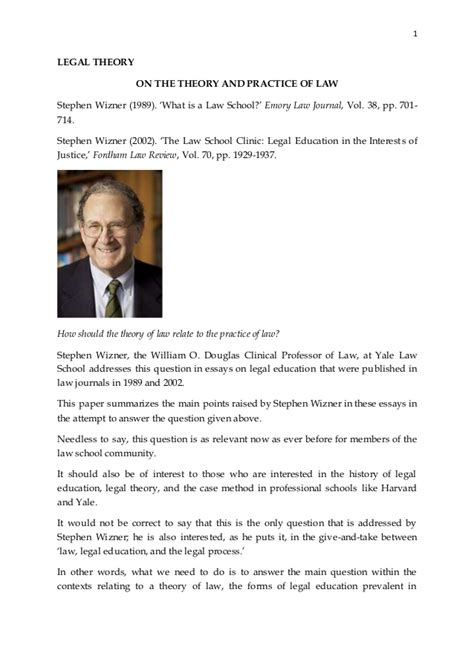A Quote by Neil deGrasse Tyson
Emotional truths woven by lawyers in the court of law are apparently more important than the truths of actual events. I have grown to fear for those whose innocence became trapped within the legal system.
Related Quotes
In law, as in every other branch of knowledge, the truths given by induction tend to form the premises for new deductions. The lawyers and the judges of successive generations do not repeat for themselves the process of verification any more than most of us repeat the demonstrations of the truths of astronomy or physics.
There are also two kinds of truths, those of reasoning and those of fact. Truths of reasoning are necessary and their opposite is impossible, and those of fact are contingent and their opposite is possible. When a truth is necessary its reason can be found by analysis, resolving it into more simple ideas and truths until we reach those which are primitive.
There are several kinds of truths, and it is customary to place in the first order mathematical truths, which are, however, only truths of definition. These definitions rest upon simple, but abstract, suppositions, and all truths in this category are only constructed, but abstract, consequences of these definitions ... Physical truths, to the contrary, are in no way arbitrary, and do not depend on us.
There are different kinds of truths for different kinds of people. There are truths appropriate for children; truths that are appropriate for students; truths that are appropriate for educated adults; and truths that are appropriate for highly educated adults, and the notion that there should be one set of truths available to everyone is a modern democratic fallacy. It doesn't work.
Lawyers, before any other group, must continue to point out how the system is really working-how it actually affects real people. They must constantly demonstrate to courts and legislatures alike the tragic results of legal nonintervention. They must highlight how legal doctrines no longer bear any relation to reality, whether in landlord and tenant law, holder in due course law, or any other law. In sum, lawyers must bring real morality into the legal consciousness
So multifarious are the different classes of truths, and so multitudinous the truths in each class, that it may be undoubtingly affirmed that no man has yet lived who could so much as name all the different classes and subdivisions of truths, and far less anyone who was acquainted with all the truths belonging to any one class. What wonderful extent, what amazing variety, what collective magnificence! And if such be the number of truths pertaining to this tiny ball of earth, how must it be in the incomprehensible immensity!
Educating Lawyers succeeds admirably in describing the educational programs at virtually every American law school. The call for the integration of the three apprenticeships seems to me exactly what is needed to make legal education more professional, to prepare law students better for the practice of law, and to address societal expectations of lawyers.
Over the past few years, the Supreme Court was six times more likely to accept cases from an elite group of 66 lawyers than it was from more than 99 percent of those who petitioned the court. That's the finding of a recent Reuters special report called "The Echo Chamber." It illustrates how almost half the appeals accepted by the court over a nine-year period came from this cadre of elite lawyers--many of whom have personal connections to the nine justices.




































